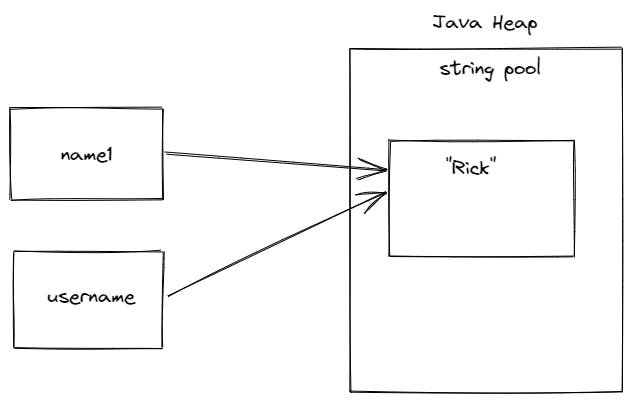Why Are Strings Immutable in Java? Comprehensive Evaluation for Designers
Why Are Strings Immutable in Java? Comprehensive Evaluation for Designers
Blog Article
What Is Unalterable Strings and Exactly How It Functions
In the world of shows, understanding the principle of unalterable strings is paramount for creating durable and secure applications. Unalterable strings refer to strings that can not be modified after they are produced, making certain information stability and predictability within the code. This basic concept plays an essential function in different shows languages and supplies a special technique to managing information. By exploring the complexities of how unalterable strings operate, one can uncover a world of benefits and opportunities that can raise the high quality and efficiency of software advancement.
The Basics of Immutable Strings
Unalterable strings, as a basic idea in shows, are character series that can not be altered once they are produced. This implies that when a string is appointed a worth, that worth can not be modified. In languages like Python and Java, strings are unalterable things, causing various effects in terms of memory monitoring and information integrity.
One of the key advantages of immutable strings is that they supply a complacency in information manipulation. Given that the material of an unalterable string can not be customized, it guarantees that the original information stays intact, lowering the danger of unexpected modifications during program execution (Why are strings immutable in Java?). This home also streamlines debugging processes, as developers can trust that as soon as a string is defined, its worth will certainly not be unintentionally modified
Additionally, unalterable strings assist in reliable memory use. When a new string is developed based on an existing one, instead of customizing the original string, the new worth is stored individually. This technique improves efficiency by minimizing memory fragmentation and streamlining memory allocation procedures. On the whole, comprehending the basics of immutable strings is critical for grasping programming concepts and enhancing code effectiveness.
Advantages of Unalterable Strings
Building upon the protection and effectiveness benefits of unalterable strings, their benefits include boosting code integrity and streamlining concurrent programming jobs. By being unalterable, strings can not be modified after development, which removes the danger of unplanned changes in the information they store. This fundamental immutability guarantees that once a string is created, its worth stays constant throughout the program's implementation, decreasing the chances of insects triggered by unanticipated alterations.
Additionally, immutable strings add to code integrity by making it much easier to reason regarding the state of a program. Considering that strings can not be transformed, programmers can trust that a string will constantly hold the very same worth, simplifying debugging and maintenance efforts. This predictability causes more reliable and stable codebases.
Implementation in Programs Languages
Within different programming languages, the consolidation of immutable strings is an essential aspect that affects how information is handled and adjusted within code structures. The execution of unalterable strings varies throughout different shows languages, with each language using its own mechanisms to support this idea.

On the other hand, languages like C and C++ do not have built-in assistance for unalterable strings. Developers in these languages need to manually implement immutability by applying rules within their code to stop direct alterations to string things.
Finest Practices for Functioning With Unalterable Strings
When handling unalterable strings in shows languages like Java and Python, sticking to ideal methods guarantees secure and reliable information control. One of the essential best methods is to use StringBuilder or StringBuffer rather than straight manipulating strings, particularly when dealing with comprehensive concatenation procedures. These courses offer mutable alternatives for string adjustment, helping to stay clear of unnecessary memory appropriations and enhancing efficiency.
One more finest method is to make use of string interpolation or formatting operates provided by the language instead of manual concatenation. This not just boosts readability but also help in stopping typical pitfalls such as unintended string adjustments. Furthermore, when collaborating with delicate data such as passwords or API tricks, it is critical to prevent keeping them as plain text in unalterable strings. Using secure storage systems like char varieties or specialized collections for handling delicate info assists alleviate protection dangers connected with immutable strings.
Real-world Applications and Instances
Checking out practical executions of unalterable strings in various sectors exposes their considerable influence on information stability and system dependability. In the medical care industry, immutable strings play a crucial role in ensuring the protection and privacy of individual data. By avoiding unauthorized adjustments to sensitive info such as clinical records and prescriptions, immutable strings help preserve conformity with rigorous personal privacy laws like HIPAA.
Financial establishments also gain from the unalterable nature of strings to enhance the safety and security of consumer information and transaction documents. Unalterable strings assist avoid fraud and unapproved alterations to financial information, supplying a durable defense versus cyber read risks and ensuring the depend on and self-confidence of customers.

Final Thought
Finest methods for functioning with immutable strings consist of preventing straight alterations and using methods that return new string items. Real-world applications of unalterable strings consist of information security, caching, and string manipulation tasks.
Unalterable strings refer to strings that can not be modified after they are produced, making certain information stability and predictability within the code. When a brand-new string is produced based on an existing one, instead than customizing the initial string, the brand-new value is saved independently.In languages like Java and Python, strings are unalterable by default, suggesting that once a string object is developed, its worth can not be altered - Why are strings immutable in Java?. Best techniques for working with immutable strings include avoiding straight modifications and making use of techniques that return new string things. Real-world applications of unalterable strings consist of data file encryption, caching, and string control tasks
Report this page